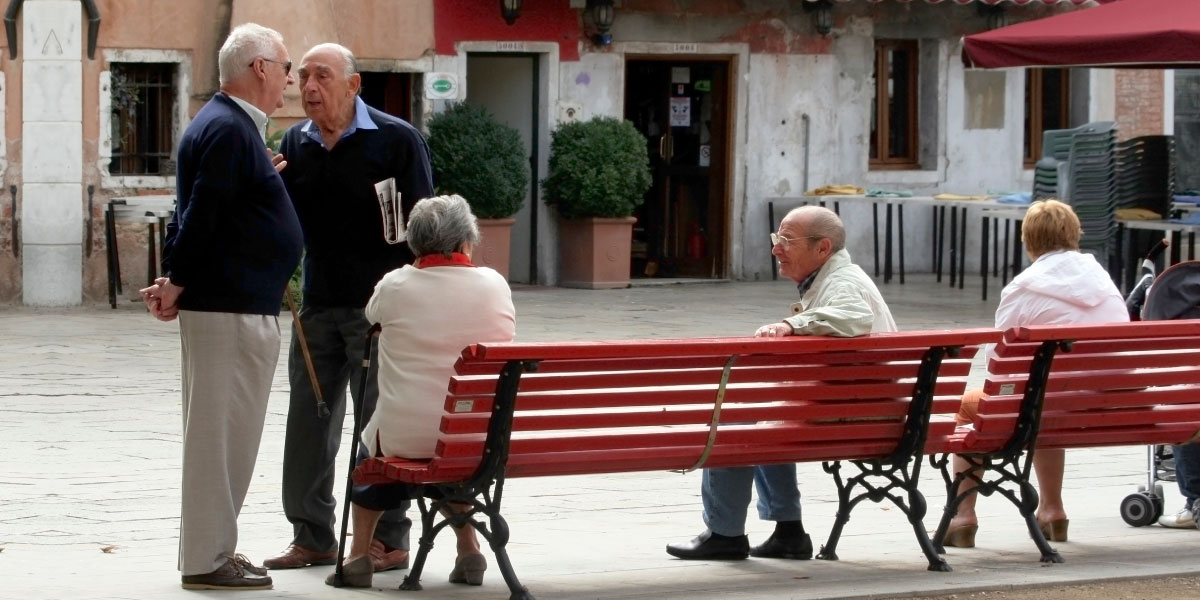PNRR–PE8
Scientific coordinator: Daniele Vignoli
Network: Università di Firenze, Università di Milano Bicocca, Università del Piemonte Orientale “Amedeo Avogadro”, Università di Padova, Università Ca’Foscari di Venezia, Università di Bologna, Università di Roma “La Sapienza”, Università di Napoli Federico II, Università del Molise, Università “Aldo Moro” di Bari, Università della Calabria, Università “Luigi Bocconi”, Università Cattolica del Sacro Cuore, Università Vita-Salute San Raffaele), oltre a Consiglio Nazionale delle Ricerche, Scuola Internazionale Superiore di Studi Avanzati (SISSA), Istituto Nazionale di Statistica (ISTAT), Istituto Nazionale Previdenza Sociale (INPS), Istituto Nazionale di Ricovero e Cura per gli Anziani (INRCA) Tech4Care, Generali Italia, HealthWare Group, Beta 80 S.p.a. Software e Sistemi, Municipia Spa, Confcooperative, Sanofi.
Brief description of the project
Age-It is a Research Programme that aims at generating a quantum leap, making Italy the leading scientific hub in research on ageing, and a state-of-the-art “empirical laboratory” regarding the ageing process. Age-It will set the gold standard in terms of socioeconomic, biomedical, policy, and technological solutions for an inclusive ageing society. Italy will become a benchmark for other, also non-European, rapidly ageing societies.
Population ageing is a major, and unprecedented, 21st century phenomenon. As a trend, it concerns the whole world, both in terms of increasing chances for individuals to reach old age (even if not necessarily in good health), and of a rising share of older people over the total population.
Global ageing is driven by the reductions in fertility and improvements in survival, typically occurring through the demographic transition. International migration partly mitigates, in some countries, the speed of changes in the age structure. Hence, the demographic transition has triggered several dynamic processes involving society, markets, welfare states, cultural and political change, within a global interconnected system.
These concurrent megatrends have caused dramatic changes in the landscape of our societies, positioning high-income countries into unchartered territory.
Ageing is a multi-faceted complex process, presenting challenges and risks, but also offering ground-breaking opportunities to promote inclusive well-being for the society as a whole.
Italy is leading global ageing: 23.3% of the population is 65 or older, and 7.5% is 80 or older; life expectancy in 2015-20 is among the highest in the world, both at birth (83.3 years) and at the age of 65 (21.1 years), with current very low levels of fertility (1.24 children per women in 2020) and net migration likely to accelerate the ageing process. This position as a frontrunner of ageing, together with the country’s extraordinary regional disparities (North vs. South, Coastal vs. Inland, Rural vs. Urban), make Italy the ideal “empirical laboratory” to address how different combinations of biological, clinical, cultural and socioeconomic factors, in addition to a variety of institutional responses by health and social care systems to the ageing process, are leading to different individual and societal outcomes. Italy thus represents an exceptional context to design, test, and implement diverse innovative solutions, and to adopt different models of intervention for prevention, health and long-term care, working arrangements, political agendas and societal outreach.
Nonetheless, while Italian scholars and specific research groups have had important individual achievements in this field, Italy cannot be considered an international reference hub of research on ageing and the contributions to the realization of national active and healthy ageing policies have been so far limited. Structural bottlenecks have hampered the advancement of research in the world of ageing: the prevalence of discipline-specific analytical frameworks, the limited transdisciplinary collaboration, the scattered availability of data, and the difficulty in translating the various scientific studies into policies. There is an urgent need to develop and coordinate a world-class, joint, comprehensive, interdisciplinary research effort to rethink policy, medical, institutional, technological, and market-oriented solutions in a broad, ambitious, and common agenda. This effort will allow to transform ageing from a challenge, as currently considered, into an opportunity to increase the prosperity and inclusiveness of Italian society in the next decades.
Guarda il video

